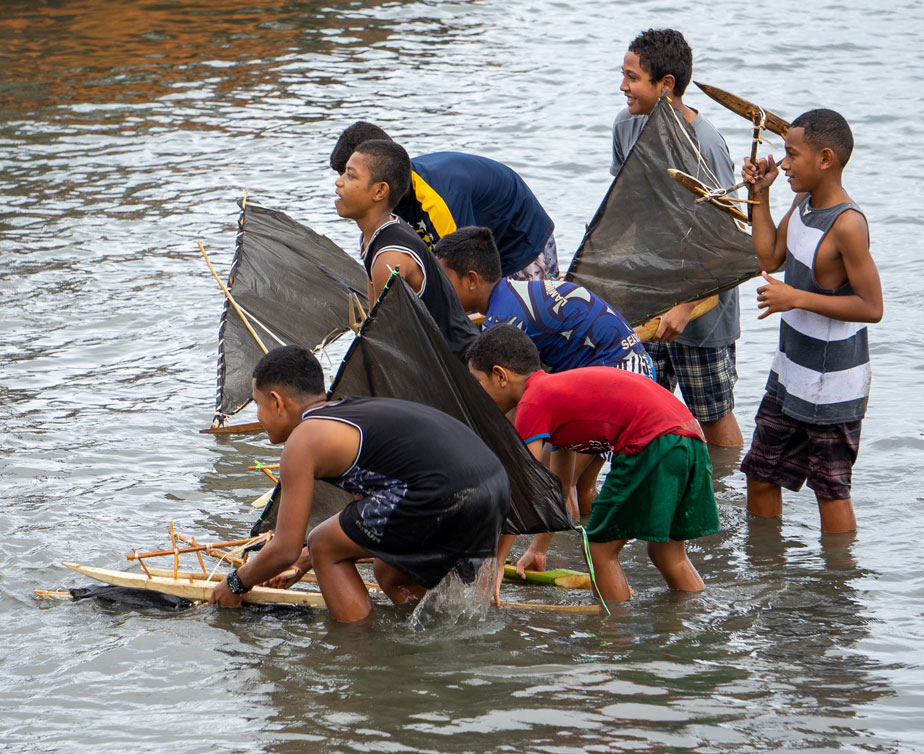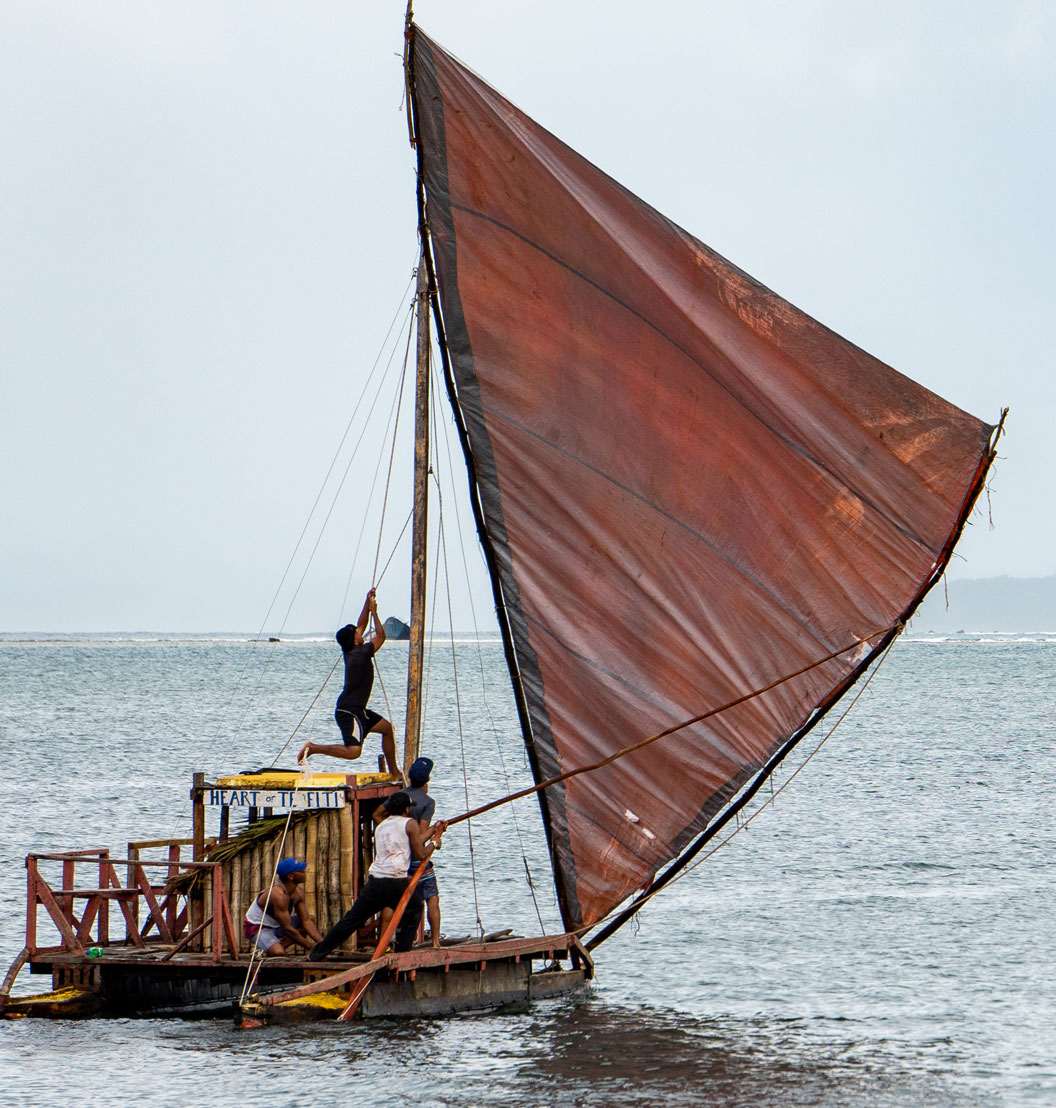The Fijian Boats and Their Future
Veita Waqa – a future for ancient boats
About a thousand years before the birth of Christ, the first Fijians plowed through hundreds of miles of uncharted waters of the Pacific Ocean with nothing but currents and stars to act as their navigational system. The mighty dug-out double-hulled canoe was their only transport. They battled ferocious seas and weather to find landfall among the 300 scattered islands that would later become Fiji. Quite an extraordinary feat, considering it took place at least two thousand years before the Vikings navigated their longboats to the coasts of Greenland and America!
Testament to the ingenuity of the traditional Fijian boat builders and voyagers is that smaller outrigger canoes were until a few decades ago used as the pickup trucks of the Fijian lagoons, ferrying people to fishing grounds and transporting trade goods such as coconuts, tapa cloth and hardwood from island to island. A much smaller number of these boats are still around today, but with technology that brought the outboard motor on a fiberglass hull, and the departure of many youth from outer islands to secondary schools in urban areas, the use of traditional craft has seriously declined. But the tide is now turning.
The Boats
The following categories of boats are part of the Veitau Waqa event

Bakanawa
The Bakanawa race is to enthuse children to have fun and learn the knowledge about this boat; something unique in our beautiful Fiji. The elders have set a standard design to be a meter long and materials to be of timber for the hull. Sails and rigging can be of any material.

Double Sailor
This race is for two adults on a Camakau or Drua canoe. The elder judges define a starting point from the beach and around buoys placed with the help of Fiji Navy out in the harbor, for them to follow and sail back to the starting point.

Triple Sailor
This race is for three adults on a Camakau or Drua canoe; following similar course to double sailor.
In 2012 young 15 year old Tuicakau Jikoisuva, son of master boat builder Jioji Bera, raced his toy Bakanawa boat. Four years later, in 2016 Tuicakau repaired a full size Camakau provided by Pacific Blue Foundation and competed in the double sailor and triple sailor adult events. This was a huge boost to us and we believe these young children are playing a very important role in the Veitau Waqa - the boat lives.
In 2017 Tikoidelaimakotu Fuluna shared his belief about the importance of the ocean to our lives. Fuluna grew up in Korova in Suva, a community with a heritage of canoe building and sailing from the island of Ogea in Lau which; Pacific Blue Foundation had been working with since the initiation of the Veitau Waqa. His message is a call to value the body of water that sustains our planet and our ancient traditions for living sustainably with it. The sea changed Tikoidelaimakotu Fuluna’s life at the tender age of three when it claimed his father’s life while sailing a Drua to Suva.
In 2012 young 15 year old Tuicakau Jikoisuva, son of master boat builder Jioji Bera, raced his toy Bakanawa boat. Four years later, in 2016 Tuicakau repaired a full size Camakau provided by Pacific Blue Foundation and competed in the double sailor and triple sailor adult events. This was a huge boost to us and we believe these young children are playing a very important role in the Veitau Waqa - the boat lives.
In 2017 Tikoidelaimakotu Fuluna shared his belief about the importance of the ocean to our lives. Fuluna grew up in Korova in Suva, a community with a heritage of canoe building and sailing from the island of Ogea in Lau which; Pacific Blue Foundation had been working with since the initiation of the Veitau Waqa. His message is a call to value the body of water that sustains our planet and our ancient traditions for living sustainably with it. The sea changed Tikoidelaimakotu Fuluna’s life at the tender age of three when it claimed his father’s life while sailing a Drua to Suva.
